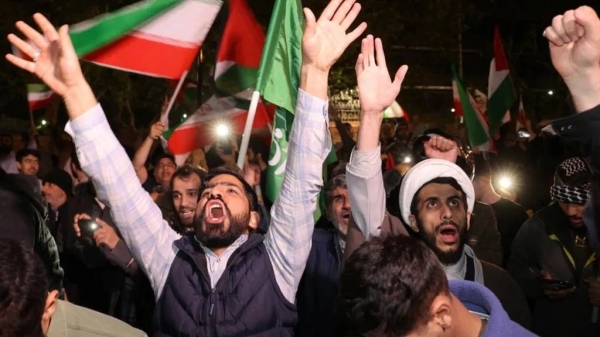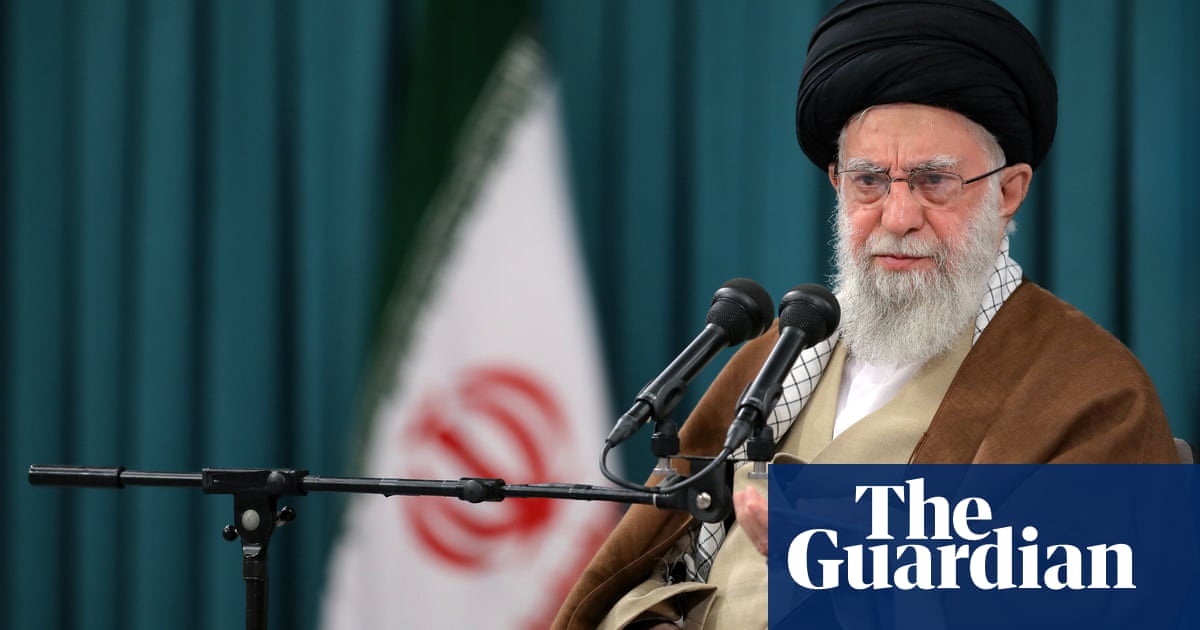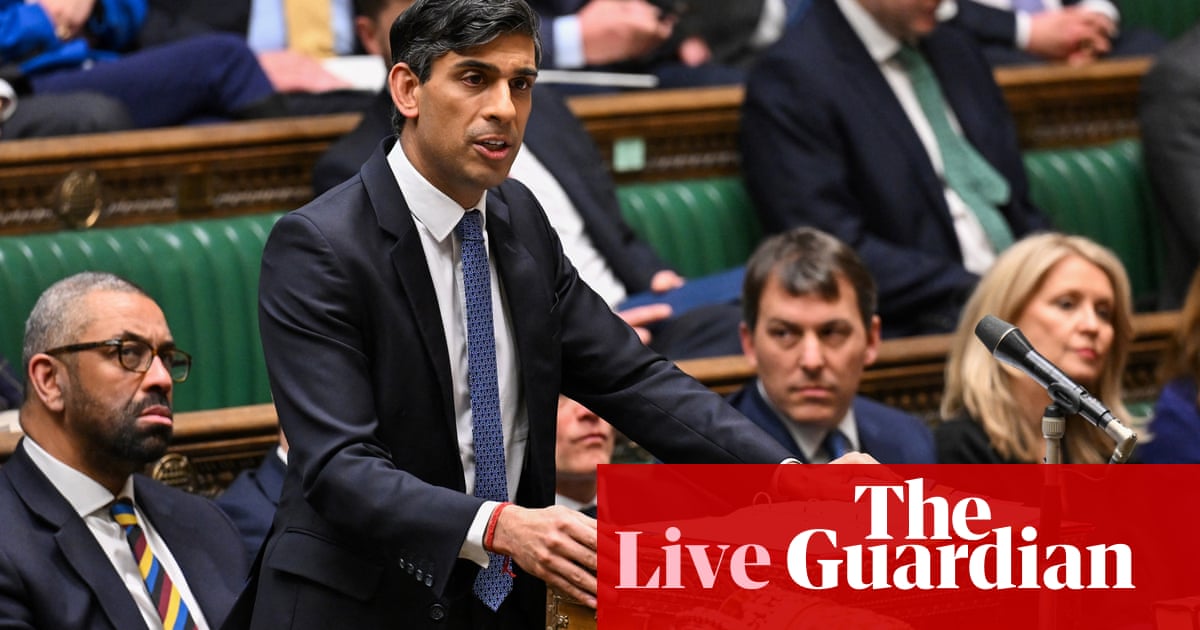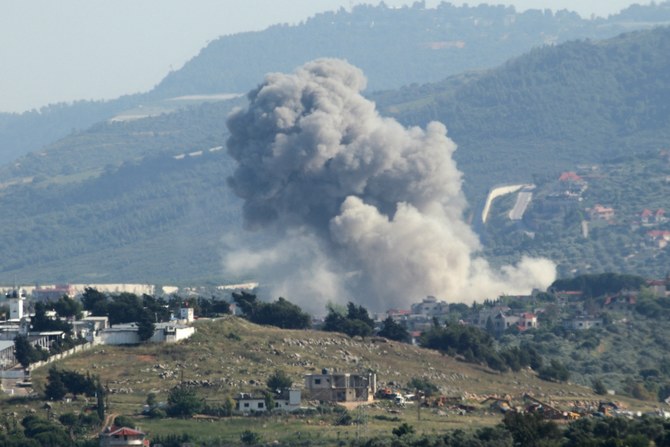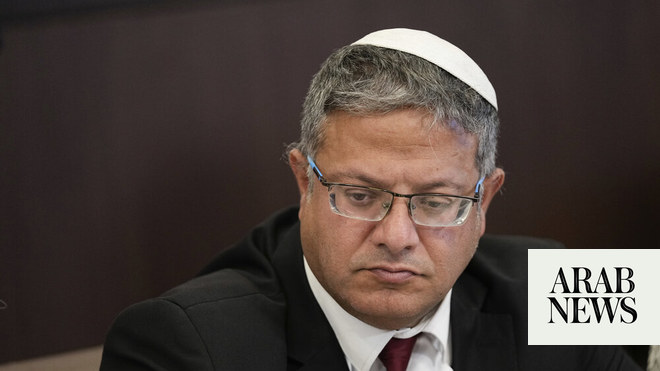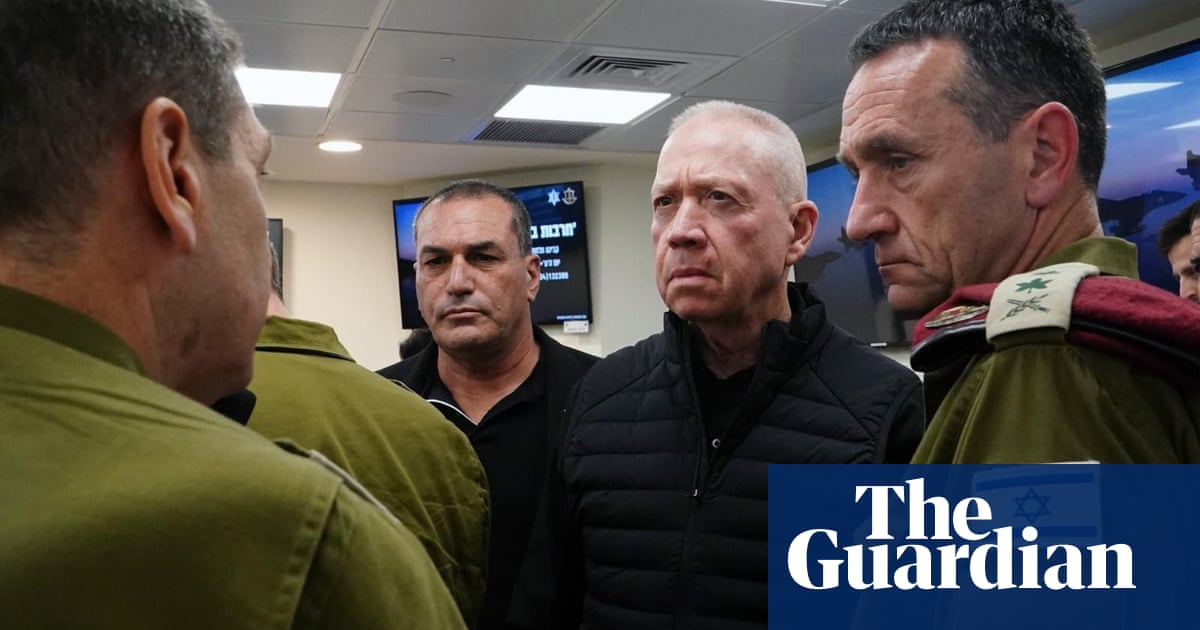
Israel is weighing its response to Iran’s unprecedented missile and drone assault on its territory, signalling on Sunday night that it would not immediately act alone, but insisting its forces remained on high alert and that the leadership had approved both “offensive and defensive action”.
Washington warned it would not take part in any Israeli counter-offensive against Tehran, whose large-scale attack on Saturday night involved about 300 missiles and drones, almost all of which were intercepted before they could land in Israel.
Two members of Israel’s three-man war cabinet made statements suggesting they were taking a longer-term view of the response to Iran’s first ever direct attack on Israeli soil. But the prime minister, Benjamin Netanyahu, had not declared a formal decision by late on Sunday.
US officials said the Iranian salvo, which included over 100 ballistic missiles, could have been catastrophically destructive had they not been intercepted, and would have made a regional war much more likely.
The Israeli defence minister, Yoav Gallant, said the successful interception against the attack by the country’s air force and several allies was an opportunity for a new “strategic alliance” against Iran.
Gallant’s remarks followed a statement from Benny Gantz, a member of Israel’s wartime unity government, who said: “[Israel] will build a regional coalition and exact the price from Iran in the fashion and timing that is right for us.”
However, R Adm Daniel Hagari, the chief military spokesperson, added later on Sunday: “Over the last few hours we approved operational plans for both offensive and defensive action.”
Biden and his officials have sought to convince Netanyahu and his cabinet that the success of Israel’s missile defences, aided by the US, UK and other allies, in blocking the attack represented a victory in itself, demonstrating the unquestionable military superiority of Israel and its allies, and that a counterattack against Iran would be strategically unwise.
Biden also made it clear in a call to Netanyahu in the early hours of Sunday morning that the US would not take part in any such offensive on Iranian territory.
“We are committed to defending Israel. We would not be a part of any response they do. This is a very consistent policy,” a senior administration official said. “Our aim is to deescalate regional tensions. We do not want a broader regional conflict. Our focus has been to contain this crisis.”
The official said Washington had been hearing reassuring noises from the Israeli leadership. “Israel has made clear to us they’re not looking for a significant escalation with Iran,” the official said. “That’s not what they’re looking for. They’re looking to protect themselves and defend themselves.”
US officials said the most tense moment of the attack was when Iran launched 100 ballistic missiles, capable of reaching Israel within a few minutes, within a short space of time. Almost all were shot down by Israel’s Arrow missile defence system, while interceptors fired by US warships in the eastern Mediterranean accounted for between four and 10.
Iran also launched more than 30 land-based cruise missiles and over 150 explosive drones.
A US administration official said there was no question that the attack was intended to cause significant damage and loss of life. “They were clearly intending to destroy and to cause casualties,” the official said. “They launched 100 ballistic missiles, targeting certain locations, that was clearly their intent. They just didn’t succeed.”
The overnight attack by Iran was launched in retaliation for an airstrike on an Iranian diplomatic building in Syria on 1 April that killed several Iranian Islamic Revolutionary Guards officers.
The attack in the Syrian capital of Damascus came amid months of spiralling tensions over the war in Gaza and six months of near daily tit-for-tat aggression on the Blue Line separating Israel and Lebanon’s powerful Iran-backed militia, Hezbollah.
Israel, with the help of key western allies including the US, UK and Jordan, claimed to have intercepted 99% of the launches during the mass strike. Many of the missiles and drones were brought down outside Israel’s airspace, and others were intercepted over Israeli territory.
Some ballistic missiles damaged the Nevatim airbase in the southern Negev desert, an Israel Defense Forces spokesperson said on Sunday. The only reported casualty was a severely injured seven-year-old child from Israel’s marginalised Bedouin community.
The countries that took part in repelling the Iranian attack could band together “against this grave threat by Iran which is threatening to mount nuclear explosives on these missiles, which could be an extremely grave threat,” Gallant said. Iran denies seeking nuclear weapons.
Iran’s foreign minister said on Sunday that Tehran had informed the US of its retaliatory plan in advance, and gave a 72-hour warning to neighbouring countries.
The Middle East nonetheless remains tense after the direct Iranian attack decisively moved its years-long shadow war with Israel into the open, with potential repercussions across the region.
Israeli war planes were reported to be bombing Hezbollah positions in southern Lebanon on Sunday. On the Gaza front of the fast-expanding regional war, Netanyahu said Hamas had rejected a ceasefire proposal and that Israel would continue to pursue its conflict there with “full force”.
Iran said its attack was aimed at punishing “Israeli crimes” but it now “deemed the matter concluded”. The country’s army chief of staff, Maj Gen Mohammad Bagheri, told state TV: “Our response will be much larger than tonight’s military action if Israel retaliates against Iran.” He added a warning to Tel Aviv and Washington that any backing of Israeli retaliation would result in US military assets in the region being targeted.
The leaders of the G7 issued a statement condemning Iran’s attack on Israel and reaffirming the group’s commitment to Israel’s security after Biden said he would convene the group on Sunday to “coordinate a united diplomatic response” to Iran’s “brazen” attack.
Russia, China and Turkey as well as Arab states Egypt, Qatar and the United Arab Emirates have also urged restraint, and the UN security council is to meet later on Sunday.
“We will do everything to stop a further escalation,” the German chancellor, Olaf Scholz, said on a visit to China. “We can only warn everyone, especially Iran, against continuing this way.”
Some airlines resumed flights after abrupt cancellations on Saturday night, when several countries in the region took the decision to close their airspace to commercial traffic. Schools in Israel will remain closed on Monday, and Iran’s airspace has not reopened. Share prices fell in stock markets in Israel and Gulf states on opening on Sunday, Reuters reported.
Hamas’s 7 October attack that killed about 1,200 Israelis and saw another 250 abducted triggered an unprecedented war in the Gaza Strip in which more than 33,000 people have been killed and the rest of the 2.3 million population are suffering a dire humanitarian crisis.
It has led to soaring tensions in the region as Iran-backed groups as far away as Syria, Iraq and Yemen joined the fray. Netanyahu, long considered an Iran hawk, has repeatedly pushed the international community to take tough action against Tehran’s nuclear programme and regional proxies.




